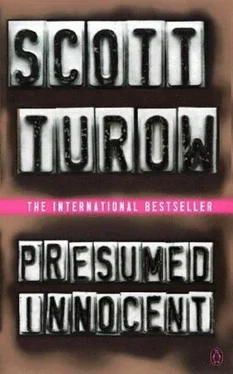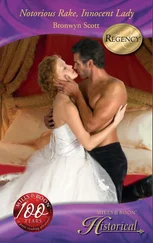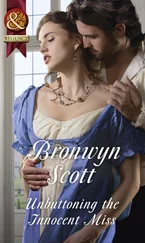Scott Turow - Presumed innocent
Здесь есть возможность читать онлайн «Scott Turow - Presumed innocent» весь текст электронной книги совершенно бесплатно (целиком полную версию без сокращений). В некоторых случаях можно слушать аудио, скачать через торрент в формате fb2 и присутствует краткое содержание. Жанр: Детектив, на английском языке. Описание произведения, (предисловие) а так же отзывы посетителей доступны на портале библиотеки ЛибКат.
- Название:Presumed innocent
- Автор:
- Жанр:
- Год:неизвестен
- ISBN:нет данных
- Рейтинг книги:4.5 / 5. Голосов: 2
-
Избранное:Добавить в избранное
- Отзывы:
-
Ваша оценка:
- 100
- 1
- 2
- 3
- 4
- 5
Presumed innocent: краткое содержание, описание и аннотация
Предлагаем к чтению аннотацию, описание, краткое содержание или предисловие (зависит от того, что написал сам автор книги «Presumed innocent»). Если вы не нашли необходимую информацию о книге — напишите в комментариях, мы постараемся отыскать её.
Presumed innocent — читать онлайн бесплатно полную книгу (весь текст) целиком
Ниже представлен текст книги, разбитый по страницам. Система сохранения места последней прочитанной страницы, позволяет с удобством читать онлайн бесплатно книгу «Presumed innocent», без необходимости каждый раз заново искать на чём Вы остановились. Поставьте закладку, и сможете в любой момент перейти на страницу, на которой закончили чтение.
Интервал:
Закладка:
But at least there was something. I gradually recognized the significance of our communication. I was not mad. I was not caught up with something imaginary; something was happening. We had been talking about something. And that turbulent, lost unease of mine began to change. There in the bus, as I sat in the rear, in a pit of darkness, my obsessions now took on a sabering quality, and knowing that I had entered the region of the real, I began to feel, simply, fear.
Chapter 7
Studio B, it says outside the door. I enter a large open space the size of a small gymnasium. There is a mustardy quality to the light in here; the walls are yellow tile and they seem vaguely luminescent. The feeling is very much like Nat's grade school: a row of sinks, floor-to-ceiling compartments of white birch that are apparently student lockers. One young man is working at his easel by the windows. I spent, of course, many years around the U. probably, if I had to get down to this kind of dismal estimate, the happiest time of my life-but I doubt that I ever entered the Art Center before, especially if you do not count the adjacent auditorium, where Barbara, on occasion, brought me to attend some plays. For an instant, I am perplexed that I am here. Better to send Lipranzer, I think clearly. Then I speak.
"Marty Polhemus?"
The boy turns from the easel, some anxious sign working through his expression.
"Are you from the police?"
"P.A.'s office." I offer my hand and give my name. Marty tosses his brush down on a table where tubes of acrylic paint and round white bottles of gesso are randomly set; he picks up his shirttail to wipe his hand before he shakes. Marty is an art student, all right, a pimply kid, with lots and lots of hair, loose brass-colored ringlets; he has spots of paint all over his clothing and a gruel of paint and just plain dirt under his long fingernails.
"They said somebody else might like come to see me," Marty tells me. He is a nervous sort, eager to please. He asks if I want coffee and we go to a drip pot back near the door. Marty pours two foam cups full, then has to put them down to grope in his pockets for change. I, finally, toss two quarters in the kitty.
"Who was it," I ask, as we both stand blowing into our coffee cups, "who said someone else might see you? Mac?"
"Raymond. Mr. Horgan. He said."
"Ah." An awkward silence-although Marty is the kind of kid with whom it seems there would be many. I explain that I am the deputy P.A. assigned to the investigation of his mother's murder, and that I received his class schedule from the registrar. Tuesday, 1-2 p.m., Independent Art Studio. "I just wanted to touch base in case there's something you might be able to add."
"Sure. Right. Whatever you want," Marty says. We drift back toward his easel, and he ends up sitting on the broad ledge beneath the windows. From here, beyond the university, you can see the railroad lines, dug out and gathered over the belly of the city like a large and tangible scar. The boy is looking in that direction, and I stare for a moment, too.
"I didn't know her very well," he tells me. "You heard the story, didn't you?" As he asks this, his eyes are quick, and I am not certain if he would prefer that I say yes or no. When I admit my ignorance, he nods and looks away.
"I didn't see her for like a long time," he says simply. "My father can tell you the whole thing, if you want. Just call him. He said he'd do what he could to help."
"He's in New Jersey?"
"Right. I'll give you the phone."
"I take it they were divorced."
At that Marty laughs. "God, I hope so. He's been married to my mother-I mean Muriel, but I always call her my mother. They've been married fifteen years."
He brings his legs up onto the window ledge and looks out over the clustered campus structures as he speaks. After suggesting that I call his father, the boy, in a moment, tells me himself about what's behind him. He has no particular ease about this; his hands are wound about each other in an almost crippled fashion. But he continues without prodding. The story which Marty tells in fits and starts is one of the contemporary era. His father, Kenneth, was a high school English teacher in a small town in New Jersey, and Carolyn was his pupil.
"My father said she was, you know, like real attractive. I think he started going out with her while she was still in school. I mean, they were sneaking around or something. Which isn't Dad. At all. He's real quiet. I bet he didn't know two girls when he met her. He never said that, but I'd bet. I think it was like some big passionate thing. You know. Real romantic. On his end, anyway." Here the boy appears confounded. His estimate of Carolyn is clouded. He clearly does not know enough to even guess at her emotions.
"Her," he says. "Carolyn. You know, my mother. My real mother," says the boy, screwing up his face. "My father called her Carrie. She had all these brothers. And her father. Her mother was dead. I guess she hated all of them. I don't know. They all hated each other. Dad said her father was always beating the tar out of her. She was real happy to get away from them."
The boy abruptly leaves the ledge and approaches his painting, a swirling eye of red. He squints at it, reaches out for one of the tubes. He intends to work while we speak.
He does not, he says, know exactly how his parents broke up. When he was born, Carolyn was trying to go to college and was unhappy that she had to quit. His father just says that all hell was breaking loose in those days and Carrie got caught up in it. She had a boyfriend, Marty says, he is pretty sure of that from the way his father talks. But the father apparently does not dwell on that. The way his father put it is that because of other dissatisfactions she stopped liking the town, his father, the life she had.
"My father says she was too young when they got married, and she grew up and wanted to be something else, and just like decided to be it. Dad says it was a big mess. One day she took off. And my father, you know, says it was probably for the best. He's that kind of person. He says stuff like that and means it."
This father emerges in his son's words as a kind of Norman Rockwell figure, wise and gentle, with spectacles in his hand and the paper-the kind of man to spend long nights in thought in the parlor, a teacher who always took his students to heart. I have a son, I almost tell this boy. I would like to think that someday he would feel this way about me.
"I don't have any idea who killed her," Marty Polhemus tells me suddenly. "I mean, I assume that's why you came."
Why did I come? I wonder. To see what she was hiding, I suppose, or did not care to tell. To diminish a little further my idea of what I had thought was intimacy.
"Do you think it was somebody she knew?" he asks.
"I mean, do you have leads, or whatever you call it. Clues?"
The answer, I tell him, is no. I describe the equivocal state of the evidence: the unlocked windows, the glass. I spare him the description of the cords, the non-viable condition of the seminal fluid. This is, after all, his mother. Although my sense is that there is little need for care or solicitude. I doubt that Marty's look of nervous bewilderment has anything to do with recent events. Indeed, there is something that makes it seem as if he regards himself, largely, as an outsider to all of this.
"Carolyn tried a lot of rape cases," I say. "Some people think it might be someone like that."
"You don't?"
"Murders aren't usually mysterious. In this city these days, half of them are gang-related. In almost all the other cases, the victim and the killer knew each other well. About half of them are broken love affairs: marriage on the rocks, unhappy lovers, that kind of thing. Usually there's been some kind of breakup in the last six months. Generally, the motivation is pretty obvious."
Читать дальшеИнтервал:
Закладка:
Похожие книги на «Presumed innocent»
Представляем Вашему вниманию похожие книги на «Presumed innocent» списком для выбора. Мы отобрали схожую по названию и смыслу литературу в надежде предоставить читателям больше вариантов отыскать новые, интересные, ещё непрочитанные произведения.
Обсуждение, отзывы о книге «Presumed innocent» и просто собственные мнения читателей. Оставьте ваши комментарии, напишите, что Вы думаете о произведении, его смысле или главных героях. Укажите что конкретно понравилось, а что нет, и почему Вы так считаете.












